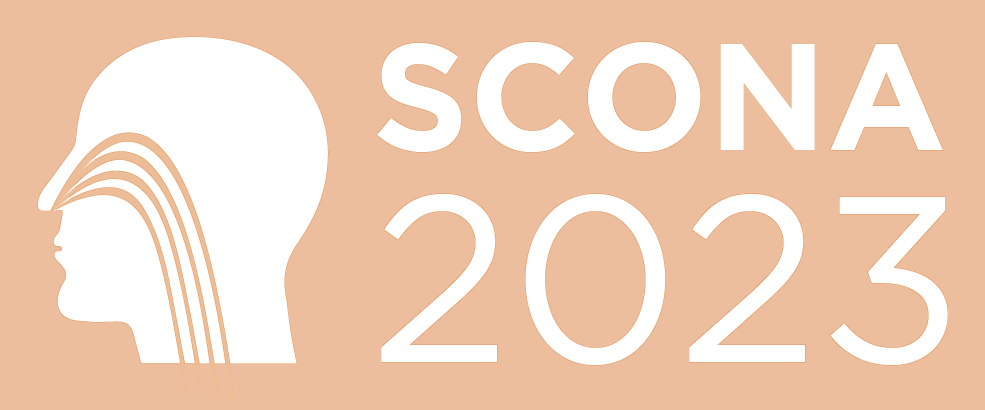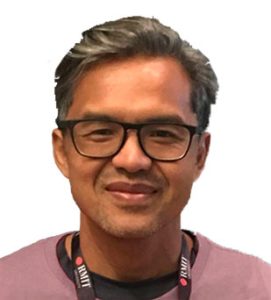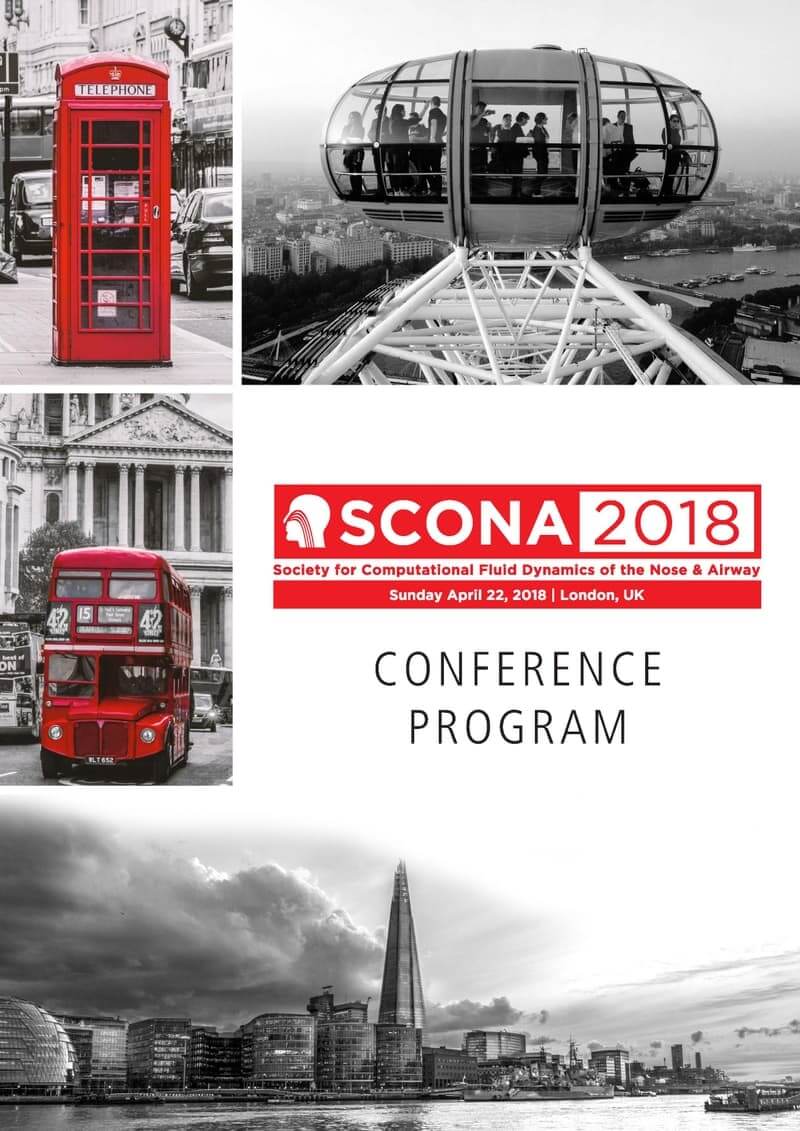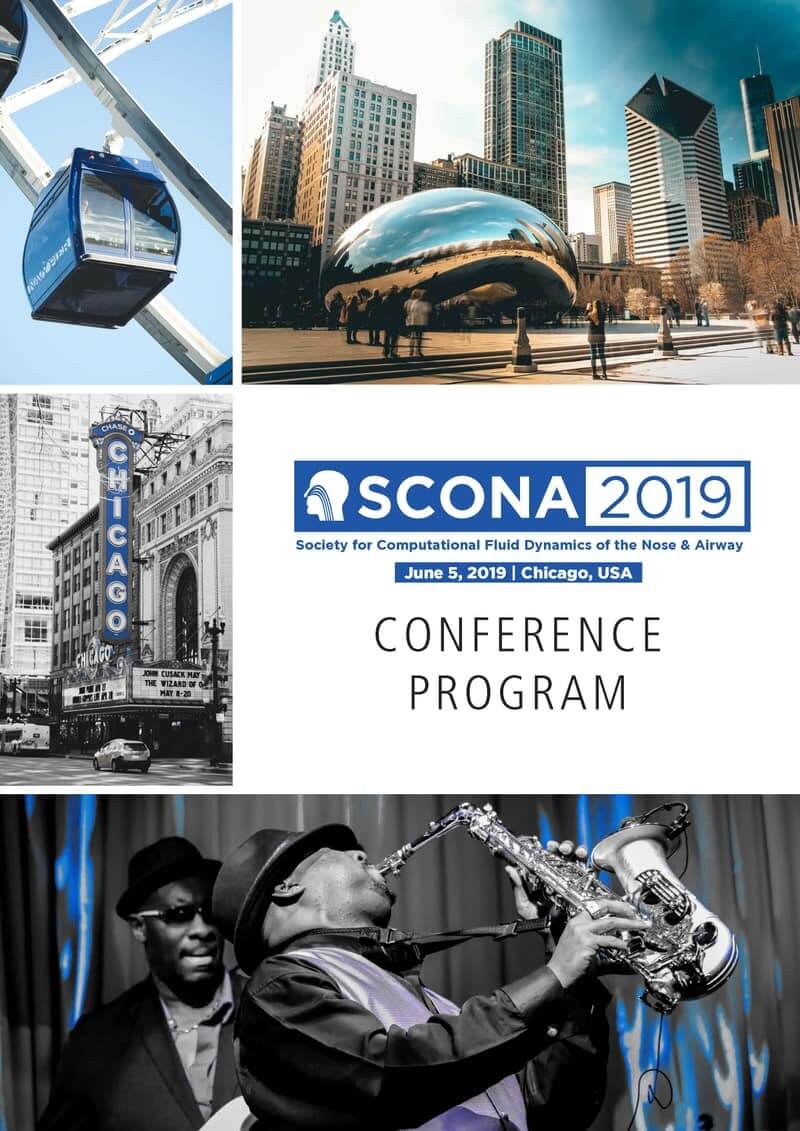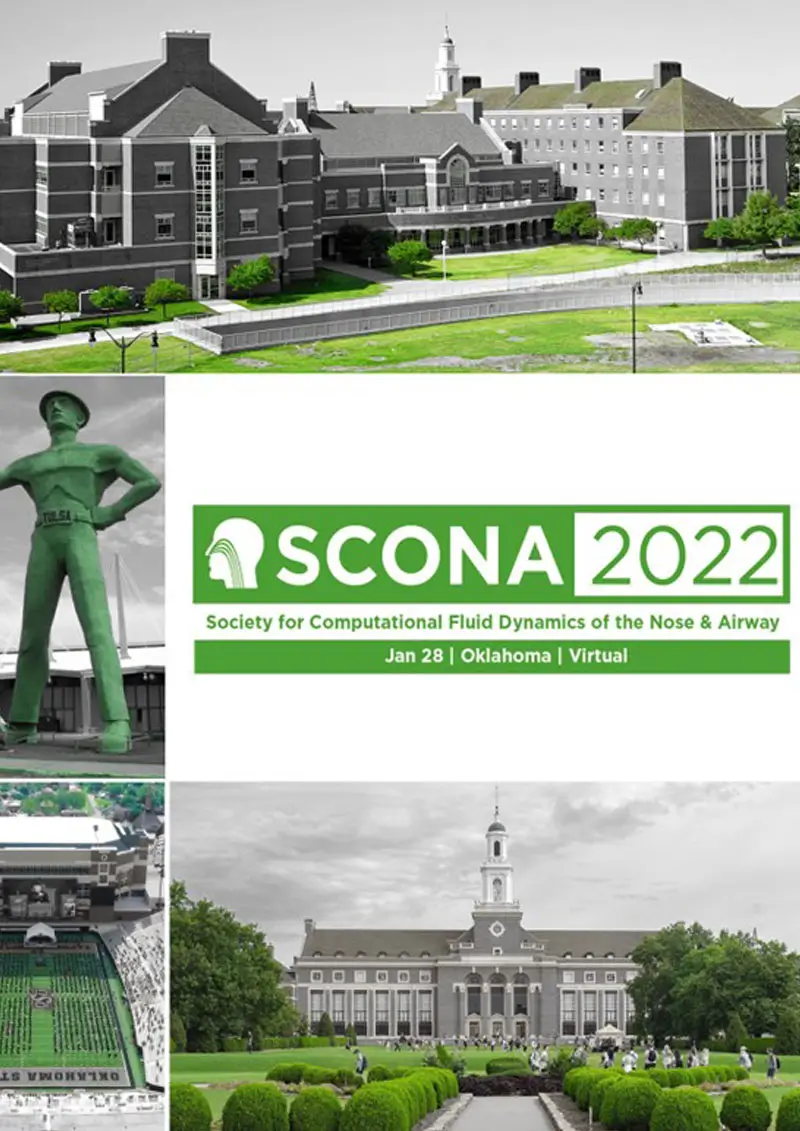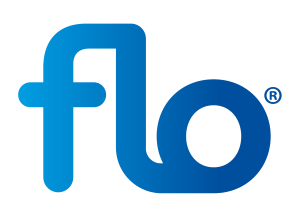About SCONA
Computational fluid dynamics (CFD) is emerging as a powerful objective tool in otolaryngology. CFD technology can quantify upper airway physiological functions, including airflow conductance, nasal air conditioning (heating and humidification of inspired air), delivery of odorant molecules to the olfactory epithelium, flow-induced phonation, and delivery of aerosol medications to their target sites.
CFD has been applied to investigate the pathophysiology of a wide range of upper airway diseases, including nasal airway obstruction, chronic rhinosinusitis, empty nose syndrome, nasal septal perforations, and laryngotracheal stenosis. One of the most attractive features of CFD technology is the ability to perform virtual surgery and thus to predict how surgical intervention will affect objective measures of upper airway aerodynamics.
The goal of SCONA 2023 is to bring together clinicians and engineers to share their ideas, learn about recent advances in the field, and to facilitate the development and application of CFD technology in sinonasal and laryngeal airway.
We will have presentations from leading experts on a range of topics, including advances in virtual surgery planning, diagnosis of nasal airway obstruction via CFD, and optimising the use of topical medications for more effective treatment of upper airway diseases.

Important Dates & Times:
ABSTRACT SUBMISSION FOR SCONA 2023 IS NOW CLOSED
Abstract Submission Deadline (extended) - Monday, December 5th 2022
Notification of Abstract Acceptance - December 12th 2022
Presentation Upload Deadline - February 1st 2023
SCONA 2023 Conference - Wednesday, March 8th 2023

Registration Information
-
The registration fee for SCONA 2023 is $50 AUD for engineers / scientists who do not plan to attend the main Asia Oceania ORL-HNS Congress
-
Limited in-person tickets available, first come first serve
-
Virtual registration tickets available
Organising Committee:
-
Ben Panizza
University of Queensland, Australia
-
Hana Salati
RMIT University, Melbourne, Australia
-
Sara Vahaji
RMIT University, Melbourne, Australia
-
Patrick Warfield-McAlpine
RMIT University, Melbourne, Australia
-
Brenda Vara Almirall
RMIT University, Melbourne, Australia
-
Zubair Hasan
University of Sydney, Sydney, Australia
-
Praween Senanayake
University of Sydney, Sydney, Australia
-
Michael Lee
University of Sydney, Sydney, Australia
-
Marin Duvnjak
University of Sydney, Sydney, Australia
-
Sally Gyzen
The Australian Society of Otolaryngology, Head and Neck Surgery (ASOHNS)
Scientific Faculty:
-
Guilherme Garcia
Marquette University & The Medical College of Wisconsin, WI, USA
-
Dennis Frank-Ito
Duke University, NC, USA
-
Denis Doorly
Imperial College, London, UK
-
John Rhee
The Medical College of Wiscoinsin, WI, USA
-
Julia Kimbell
University of North Carolina, NC, USA
-
Yu Feng
Oklahoma State, University, USA
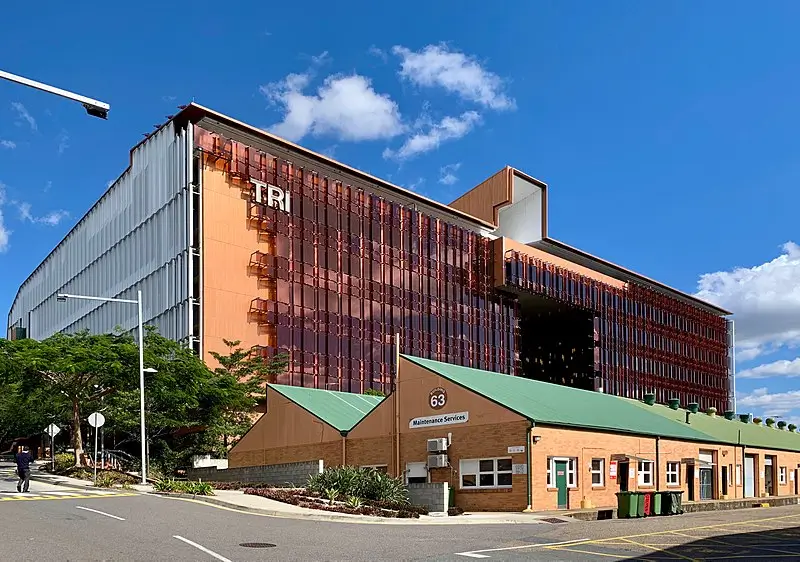
Translational Research Institute (TRI) @ Brisbane
The Translational Research Institute (TRI) is Australia's first translational medical research institute dedicated towards translating scientific discoveries into applications for medical practice. Located in Woolloongabba, in inner-city Brisbane, Queensland, TRI was established in October 2013. TRI is supported by grants from the Australian Government ($140 million); funding from the Queensland Government ($107 million), Queensland University of Technology ($25 million) and The University of Queensland ($10 million).
Over 800 researchers and clinicians undertake medical research at TRI with studies into fields such as cancer, inflammation, infection, obesity, diabetes, kidney disease, liver disease and bone and joint disorders.
Brisbane, Queensland, Australia
Brisbane is the capital and most populous city of the Australian state of Queensland, with a population of approximately 2.6 million. A diverse city with over 32% of its metropolitation population being foreign-born, stunning natural scenery and an efficient transport hub, Brisbane is consistently ranked among the world's most livable cities.
A global city centre for research and innovation in the Asia-Pacific, Brisbane has held host to the World Expo 88, 2014 G20 Summit and will be hosting the 2032 Summer Olympics and Paralympics.


